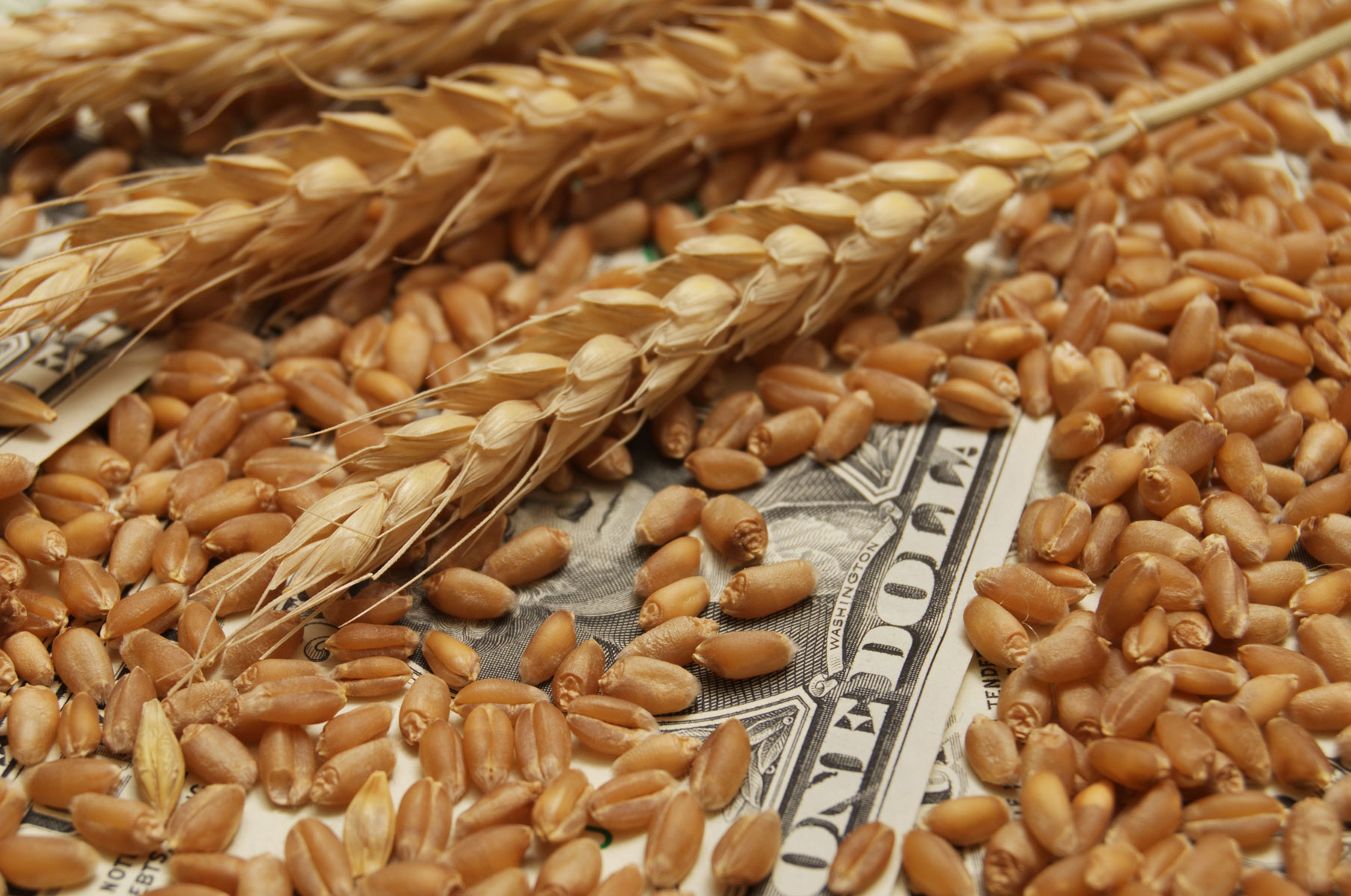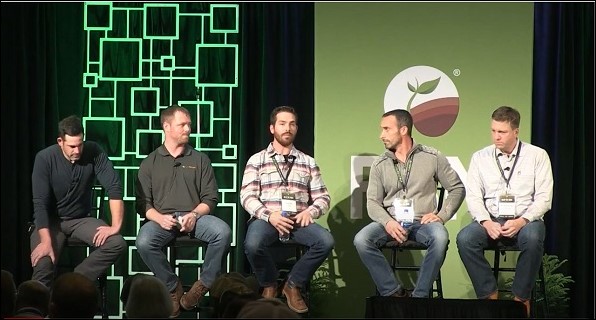- Published On: January 31, 2020
- Author: Bryce Irlbeck
It’s been 36 months since you started the transition process, and now you’re entering your first growing season as a certified organic farmer. While this means finally being able to reap those high premiums, it also means that any mistakes made are going to cost more.
By following these 7 tips, you can reduce the odds of expensive mistakes and set yourself up for success — not just in this first year, but in the long run as well.

1. Create a plan and have a backup
The No. 1 key to succeeding in organics is creating a plan and sticking to it.
Your plan should have started during the transition process because you can’t plan for just the next year — you’ve got to think long-term. One way to do this is to think about where you want to be at a certain point and then work backward. You need to know where you’re going in the next 3-4 years, at a minimum.
Key aspects of both short- and long-term plans should include:
You also need to have a backup plan in mind. While you’re not going to be able to forecast every issue, be aware of the challenges you may encounter and think through what you will do if they happen. For example, if you were planning on planting corn and it’s no longer possible, what will you do instead and how will it impact the rest of your rotation, equipment and labor needs, as well as finances?
Thinking through these possibilities is especially important in organic because you can’t switch your plans on a dime. Last-minute changes that haven’t been thought through could damage your long-term rotation or prospects.
2. Keep operational planning realistic and efficient
An important aspect of creating a good organic plan is operations. Just as you did in transition, you need to make sure everything can get done on a per-acre basis.
This means having your equipment ready to go and making sure that your workload is balanced so you’re not trying to get all of your fieldwork done on all of your acres at the same time, which goes back to having a well-thought-out crop rotation.
Also, understand that Mother Nature doesn’t care about your schedule, so you need to make adjustments around it. One organic farmer learned this the hard way when he had a 3-day window to cultivate 600 acres — the same weekend his son was getting married! While he couldn’t miss the wedding, he didn’t have a plan in place to get that cultivation done in his absence, so he came home to a weedy field.
3. Source inputs in advance
Another part of developing a good plan is understanding the differences between conventional and organic and how they may affect your operation. This includes having access to inputs.
Unlike conventional, you can’t just call up your co-op to get a product. You usually need to source those out in advance, especially with fertilizer.
Manure is the top input you need to source and plan for ahead of time because it can be difficult to find, and storing and spreading it can be logistically challenging. At B&B Irlbeck Farm, we try to get it paid and stockpiled in July the year before we plan on using it, just to ensure we have a sufficient quantity.
4. Keep good records
Once you start acting on your plan, you need to keep good records of what you’re doing. While it’s the same record-keeping you did during transition, once you become certified organic you’re going to start having inspections. The better your record-keeping, the smoother those inspections can go.
Last year several AgriSecure clients had a couple of unannounced inspections, a key component of the National Organic Program (NOP). With the farms that had their records up-to -date and well organized, the inspector was able to move through the discussion efficiently. In the past, the inspector may have asked more questions of those who weren’t as organized to make sure they understood what they were doing.
One way to stay on top of record-keeping is to utilize AgriSecure’s MyFarm system, which provides the whole picture of your operation. Instead of having to piece multiple software programs together, MyFarm keeps everything in one place so you can pull up your records on the fly. Additionally, it collects financial data to go beyond certification and help you make better economic decisions on your farm.
However you choose to track your records, make sure your entire team understands what pieces of information need to be tracked, such as collecting seed tags at planting or making sure the cleanouts are logged, and who is responsible for those records. Another benefit of working with AgriSecure is that there is someone cross-referencing everything to ensure you’ve got all your information and nothing is missing.
5. Respond with data, not emotion
In addition to record-keeping, you should try to track your data to help you understand what worked and what didn’t.
Having these records is especially helpful when you need to make changes. But when you’re in the early years of organic farming and don’t have access to that data yet, the next best thing is to work with reliable sources that can give you guidance.
AgriSecure has experience working with a network of farms, plans and cropping scenarios to provide valuable insight, but you can also work with your organic neighbors, insurance agent, and input suppliers. Build a network of people that can help you respond to changes when necessary, instead of reacting on emotion.
6. Be confident in your plan
It may be easier said than done, but being confident in what you’re doing is one of the biggest keys to succeeding in organic, especially in the first year.
Confidence comes from having that solid plan in place and educating yourself on why you’re doing what you’re doing. For example, new organic farmers are often concerned about whether they’ll have enough nitrogen to raise a good corn crop. You can build up your confidence by learning more about these alternative methods and seeking out success stories from other farmers. You need to remember that just because nobody else is doing this in your county doesn’t mean it’s wrong, and trust that it will work.
7. Do what you do best
There is a lot that goes into running an organic operation — from planning, to crop insurance, to marketing, to record-keeping. If you find one of these areas isn’t a strength of yours, utilize outside resources and experts so you can focus on what you do best: farming. By being able to do a better job farming, those resources will pay for themselves many times over.
AgriSecure can help
If you’re looking to build on your network and receive guidance from a team with over 50 years of large-scale, staple crop organic production experience, AgriSecure is here to help. Contact us to learn how you can succeed after the transition process.
By Bryce Irlbeck, AgriSecure Founder owner of B&B Irlbeck Farms and Ken, Jenkins, AgriSecure Account Executive and Owner of Goliath Ag Farms
Related Articles
-
Imports Have an Impact on Organic Crop Prices: Here’s Why
Organic soybean prices are skyrocketing. The Jacobsen reported that prices were up to $32 per bushel in the Midwest in May 2021. What’s behind this impact on organic crop prices? And why aren’t organic corn premiums keeping up? In short: it’s all about supply and demand, especially imports, says David Becker. David is an analyst […]
-
New Options Offer Farm Loans for Organic Transition
If securing farm loans for organic transition feels daunting, we have some good news. It’s not as hard as it used to be. In fact, there’s a number of new options that could provide a solution for you and your operation. Traditional lenders, farmland investors, non-profits, and even big food companies are starting to create […]
-
Organic Farming Loans Support Growers during Transition
Ask a farmer what’s keeping them from transitioning to organic row crops, and you may be surprised to hear a common answer. Finances. It’s often a struggle to find organic farming loans tailored to their needs. Yes, organics offer excellent premiums and can bring long-term profitability. But first you have to get through the 36-month […]
-
Organic Breakevens: What to Know and How to Calculate
If you’re thinking about organics, you’ve probably debated whether it’s going to pay off — literally. Yes, the price premiums are good, but you’ve heard your yields will take a hit. How can you predict profitability? The answer: calculating your organic breakevens. What are an organic breakevens? Simply put, it’s a way to calculate what […]
-
Know Your Numbers to Push Crop Profitability
Yield is often the top priority in farming. The truth, though, is that the highest yields will not necessarily result in the highest ROI. And this is especially the case for organic production. We know good execution results in the best yields, but the best way to maximize your crop profitability is to know your […]
-
6 Ways to Protect Organic Profits in Uncertain Times
Economic uncertainty hits all sectors of the agriculture industry, including organics. The good news? It’s possible to safeguard your organic profits. For a start, it’s even more important for organic farmers to focus on executing their operations really well. The better the execution, the better you can weather the market conditions and remain profitable. Here […]
-
5 Steps for Financing the Transition to Organics
Profits. They’re one of the primary reasons farmers decide to move into organic production. Financing the transition to organics, though, can be one of your biggest hurdles. That’s why the support of a banker or ag lender can be a lifeline for farmers looking to get into organics. The right backing helps you build an […]
-
4 Keys to a Strong Organic Fertilizer Strategy
Questions about an organic fertilizer strategy are common in organic farming. How do I provide enough nutrients? In particular, nitrogen. How do I manage my crop and soil without using synthetic fertilizers? Fertilizer can come from a variety of organic sources, including animal waste, decomposing plants, and nitrogen-fixing crops like soybeans and clover. So it’s […]
-
Consider Organic Farming? Yes.
With so much economic uncertainty caused by the COVID-19 pandemic, you may be wondering: Is now the right time to transition into organic crop production? Is this the right time to increase the number of organic acres you’re already farming? My answer, yes. Current market conditions, falling commodity prices for conventional crops and somewhat lower […]
-
80 Million Millennials Can’t Be Wrong: Farmer Panel
80 million millennials are a part of the driving force behind the rapid growth of organic food demand. So why aren’t more farmers transitioning into a system that sees premiums of 2x over conventional and profitable margins? In a panel that took place at FBN’s Farmer2Farmer V event, AgriSecure co-founder and organic farmer Bryce Irlbeck […]
Get in the know
Our newsletter, it’s a quick read. You’ll get industry news plus all the latest organic insights. Who doesn’t want that?










